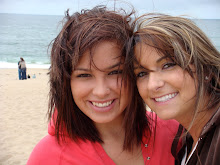3). Pick one concept from either text, not already discussed, that you found useful or interesting and discuss it.
The concept in the reading that really jumped out at me was the concept roles. At first I found myself a bit confused when looking over the text because I figured that norms and roles were the same exact thing. Once I read over the text in further detail I realized that the concept of norms and roles is very similar, but not the same. Roles specifically related to the way that you are expected to act in a group. This was interesting because Hare stated that it is the position and status of the member in the group. These members are not only expected to perform consciously, but also expected to perform informal roles as well. All of these actions can be preformed in the presence and interaction with the group. I thought that the book had a great example to clarify the difference of norms and roles. This example was “ While norms direct the behavior of the group, roles apply to particular individual’s behavior: ‘Roles are packages of norms that apply to particular group members’” (50) After reading this concept I felt that I had a clearer image to what was the exact difference between norms and roles.
Wednesday, February 10, 2010
Subscribe to:
Post Comments (Atom)

Sweetheart, it was real interesting reading your view on roles. However, I like to acknowledge that I did to understand roles a little bit more clearly. I like the example you used by saying roles specifically relate to the way we are expect to act in a group. In addition, we can see that we all have specific roles that we play among the group that makes each member unique. “Roles are ‘packages’ of norms that apply to a particular group member”. (pg 50) We can say that one member of the group can be funny, one cause drama, and one that is cocky. Additionally, roles can be roles of leadership, such as one member of the group doing all the plans for the whole group. Nevertheless, within our norms we each all have responsibilities and duties that make our group function together. While our entire characteristic is different the uniqueness of our roles makes our connection stronger.
ReplyDeleteNice thought on the concept I enjoyed reading this.
Really good examples on the difference between roles and norms. I really didn’t put two and two together till I read your post. It’s kind of funny to take a step back and look at what role we play in our separate groups. You don’t even really realize what your doing until your reflect on how your groups dynamic plays a a part in the forming of your personality in the group. And when you don’t perform your natural role in the group it throws the whole cohesiveness of it off and throws everyone for a loop which is funny. I did it the other night, I just started acting totally different and my friends got all mad, good times.
ReplyDeleteHello Sweetheart
ReplyDeleteI agree with you in the sense that norms and roles appear to have similarities. "Norms and roles are interrelated but differ from each other." (Harris/Sherblom 49) I think Casper gave you great examples. Norms focus on the group as a whole while roles focuses on the individuals. An example of a group norm would be a language that they each a expected to use. On the other hand, someone's role in that group can be the leader, the shy person, and etc. I think you are on the right track with your post but I hope all of these examples help a little bit. Great choice in the concept for this week!